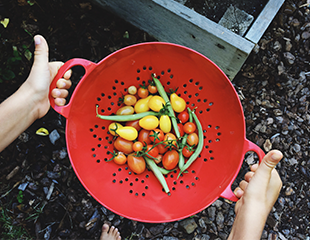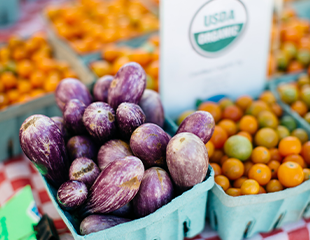As climate changes, the environment and our planet all become important issues, people have become more conscious of farming and grazing practices, which has increased awareness of regenerative agriculture. Here is everything you need to know about regenerative agriculture and why it’s the next food label you should be looking for at the grocery store.
What is Regenerative Agriculture?

Regenerative agriculture is a farming and grazing practice that improves biodiversity, increases carbon capture and restores degraded soil to create long-lasting environmental benefits. Soil is a living thing that needs to be nurtured. Unfortunately, many modern agricultural practices have degraded and destroyed the health of our soil. Regenerative agriculture seeks to reverse this damage and is quickly becoming a beacon of hope for those focused on the health of our planet.
How Regenerative Agriculture Works
.png.aspx)
Regenerative agriculture takes a holistic approach to farming that aims to restore and revive the health of our soil and ecosystems through various practices that tend to the land themselves. That means forgoing the use of herbicides and pesticides by protecting crops naturally, planting cover crops to prevent soil erosion, promoting methods like conservation tillage and crop rotation and using compost instead of synthetic fertilizers. Regenerative agriculture supports practices that allows Mother Nature to heal herself without the use of human interference through synthetic chemicals.
How You Can Support Regenerative Agriculture

When supporting regenerative agriculture, it’s not as simple as looking for a label like it is when shopping gluten-free, non-GMO or organic. The label approval process takes time and there isn’t one for regenerative agriculture just yet, but in the meantime there are steps consumers can take to help protect our planet. Consumers can:
- Hold brands to a higher standard by asking more questions and demanding transparency
- Support companies that are building a better future for our planet
- When grocery shopping, look for planet-protecting certifications like brands that are Non-GMO Project Verified
- Research brands and companies to learn more about their growing and farming practices before purchasing from them
- Volunteer at a local garden or plant your own Victory Garden to help fight climate change in your very own backyard
Show us how you support regenerative agriculture by tagging us @SimpleMills.